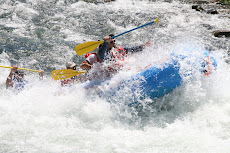I do a lot of research for my job and this column on the internet. One day in November this news popped up from Healthday, “Seniors Need Exercise.”
No kidding! The computer makes the obvious almost seem scientific!
The real science confirms it. A study at the University of Florida, Gainesville compared seniors who were taught about healthy lifestyles and seniors who had an exercise program. Folks who actually got out of their chairs and worked out had more independence a year later. It isn’t just better wind either. University of Wisconsin studied 4000 older adults for exercise and found those who did the equivalent of climbing six flights of stairs every day had a much lower incidence of macular degeneration- a major cause of vision loss in late life. Exercise is known to be both preventative and reparative for depression too.
Walking, even slowly, seems to be the best general exercise, especially for obese people according to a University of Colorado Boulder study. Even Johns Hopkins has published a study on older adults and walking. Dog owners who walk their dogs are more likely to get the recommended amount of exercise- 150 minutes per week according to the U.S. Surgeon General. It’s the walking, not the dog.
At the University of British Columbia they made another amazing discovery. Older adults prefer to exercise alone, with instruction, instead of in a group or class like younger adults. Who would believe people in their 60s and 70s don’t want to be surrounded by spandex wrapped 20 year-olds when they work out? A big difference is the body building culture. DHEA and testosterone, supplements and hormones are used to enhance athletic performance. But they don’t work on what the Mayo Clinic doctors called “elderly people.” They don’t improve strength, or physical performance on any measure for older athletes. There are other differences in sensation and tolerance as we age. The important things to remember are to get and stay hydrated. Older athletes don’t manage water balance as well as younger people. And if you hurt, if you feel faint or dizzy or short of breath… STOP. Rest. If you don’t recover quickly- call for help. But do find an activity that suits you, and just do it!
Wednesday, August 22, 2007
Subscribe to:
Post Comments (Atom)


No comments:
Post a Comment